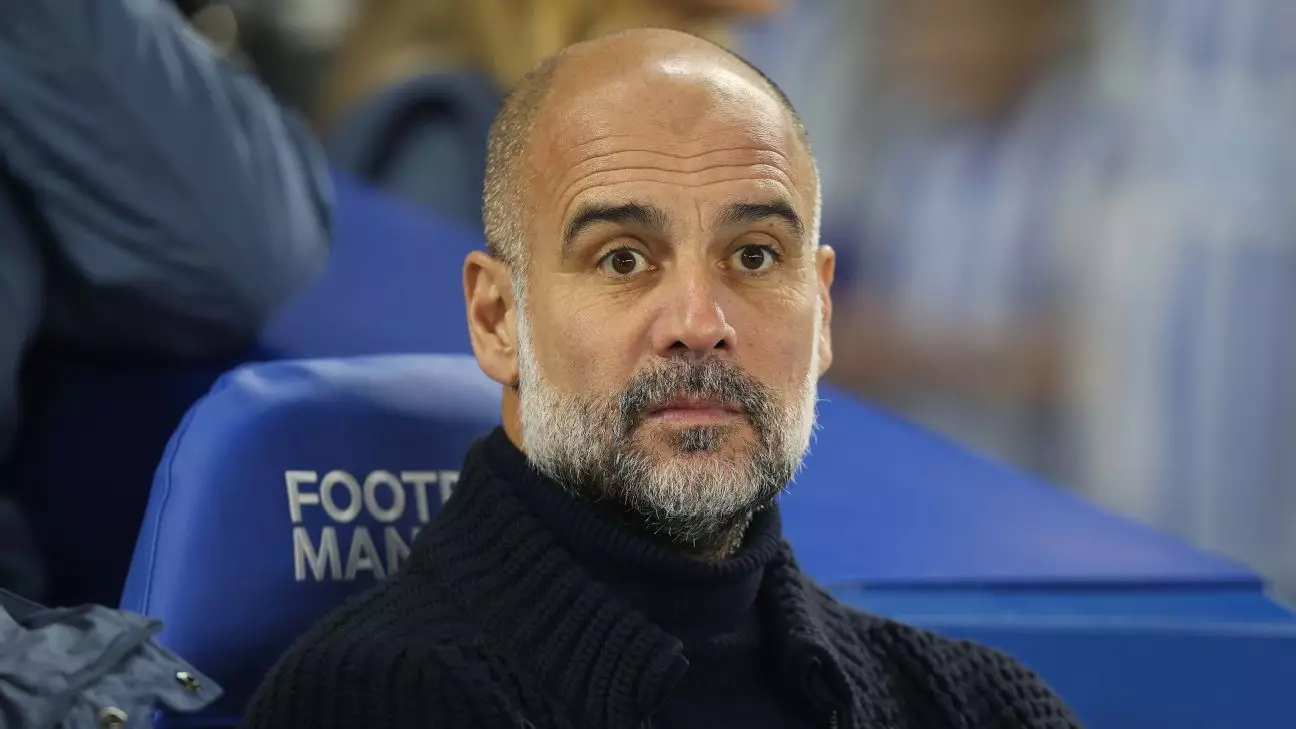Manchester City, a powerhouse in English football, finds itself standing at a crossroads as several key figures prepare for departures. The club is poised for significant changes, particularly as it grapples with the potential exit of Pep Guardiola, their renowned manager whose tenure has been marked by unprecedented success. With Omar Berrada and Txiki Begiristain already on their way out, the question lingers over how these transitions will affect the club’s performance and strategic direction.
Guardiola’s contract runs until the end of this season, and while he has maintained the ambiguity regarding his future, City leaders remain on edge. The club’s hierarchy, including CEO Ferran Soriano and chairman Khaldoon Al-Mubarak, face the challenge of positioning themselves effectively should Guardiola decide to leave. The ghost of uncertainty looms as the managerial landscape inevitably shifts.
Pep Guardiola has reshaped Manchester City since his arrival in 2016. His tactical prowess and commitment have not only earned him a glittering array of trophies—including multiple Premier League titles and a coveted Champions League victory—but have also firmly established City as a dominant force both domestically and on the European stage. However, the recent slump—four consecutive losses for the first time since 2006—raises questions not only about the current squad but also about the manager’s grip on his role.
Injuries to key players, notably Rodri, who is facing a season-ending condition, have exposed vulnerabilities within the team. Their once unassailable depth has been challenged, forcing fans and analysts alike to question whether Guardiola can continue to inspire and lead this squad back to its former glory. The combination of injuries and managerial uncertainty has painted a picture of a club at a pivotal moment—a transition period that could define the next stage of their evolution.
City’s management is reportedly keen on supporting Guardiola through this rough patch, emphasizing that they do not wish to unduly influence his decision-making. Sources indicate that plans for a possible successor are already in the works, reflecting a strategic approach to any impending change. Among the names discussed, Xabi Alonso stands out as a serious candidate owing to his emerging managerial reputation at Bayer Leverkusen.
However, the nature of modern football means that any transition needs careful calibration. Clouded by speculation, the board’s reasoning reflects the respect they maintain for Guardiola’s legacy. While some club officials remain optimistic about Guardiola’s extension, others recognize the need for a proactive strategy in light of the uncertainty surrounding the manager’s future.
Despite the turbulent form, it’s crucial to examine where City currently stands. Positioned second in the Premier League, albeit five points behind leaders Liverpool, there remains the potential for resurgence. The upcoming matches against Tottenham and Liverpool present crucial opportunities to shift momentum and restore confidence. Guardiola’s reassurance that he would resign if he felt like a liability shows a level of self-awareness that suggests he understands the weight of expectation during challenging times.
It is clear, however, that the pressure is mounting. The ongoing questions surrounding his future will inevitably filter into press conferences and discussions around the club. If Guardiola’s silence drags on, it may become increasingly challenging for him to keep his players focused on the challenges ahead.
The departures of Berrada and Begiristain mark significant moments in the evolution of Manchester City. Both administrators played pivotal roles in the club’s modern renaissance, acting as architects in building the successful structure that Guardiola has capitalized on. Their exits could signal a seismic shift that ripples through both staff and player morale. Guardiola has expressed that Begiristain’s departure will impact him, highlighting their collaborative relationship that has transcended mere professional dealings.
Moving forward, it’s crucial for any incoming leadership to recognize the existing foundation laid by the current regime. The values and philosophies established under Guardiola’s mentorship must be preserved, even as the club pivots in new directions. Ensuring that players like Phil Foden and Josko Gvardiol are nurtured will be essential in maintaining competitiveness well beyond Guardiola’s eventual exit.
As the 2023-24 season unfolds, Manchester City stands on the cusp of potential glory or a gradual decline into uncertainty. The fate of Guardiola, with its vast implications for the club’s future, lies in the balance. Whether he chooses to remain or depart will reverberate widely, shaping the trajectory of the club not only in the short term but for years to come.
This period of unrest is a defining moment for Manchester City. The ambition remains high, but reality demands a careful navigation through the complexities of both leadership transition and on-field performance. Whether this current era is drawing to a close or will be reinvigorated hinges on decisions made in the coming months. Changes are brewing; the impact of these shifts will echo throughout the club for seasons to come.

Leave a Reply